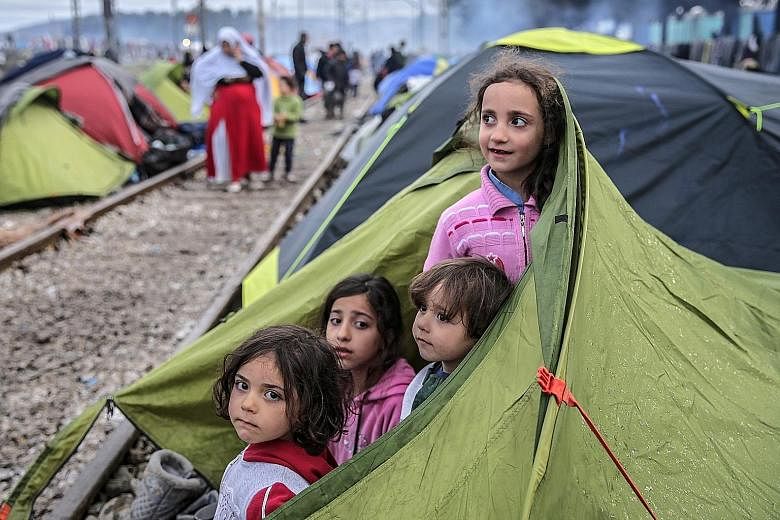GENEVA • The mass expulsion of migrants from Greece to Turkey under a draft EU-Ankara deal to ease the migrant crisis would be "illegal", the UN warned, as some of the bloc's own ministers also criticised the plan.
While EU countries squabbled over how to cope with the continent's worst migration crisis since World War II, UN rights chief Zeid Ra'ad Al Hussein said the proposed deal with Turkey raised "a number of very serious concerns".
He told the UN Human Rights Council in Geneva: "Among my concerns is the potential for collective and arbitrary expulsions, which are illegal."
EU leaders had hoped the mooted deal with Turkey - due to be finalised at an EU summit on March 17-18 - could stem the flood of migrants streaming through the bloc in search of a better life, many fleeing the war in Syria.
Underscoring yet again the human tragedy of the crisis, a fresh shipwreck off the Turkish coast claimed five lives, including a baby, as a boat full of migrants heading for Greece capsized.
The EU-Turkey plan drawn up on Monday would see Ankara take back all migrants landing in Greece, in a bid to reduce their incentive to get to Europe. In return for every Syrian expelled from Greece, the EU would resettle one Syrian refugee from camps in Turkey - which is hosting about 2.7 million people who have fled the conflict across the border.
In exchange for its cooperation, Turkey wants €6 billion (S$9 billion) in aid, visa-free access to Europe's passport-free Schengen zone and a speeding up of its efforts to join the EU.
But some EU ministers have voiced opposition to the plan.
Said Austrian Interior Minister Johanna Mikl-Leitner on the sidelines of a ministerial meeting in Brussels: "I am seriously wondering whether we are taking ourselves and our values seriously or if we are throwing them overboard," she said, in a reference to concerns over human rights violations in Turkey.
The migrant crisis has exposed sharp divisions in the 28-member bloc and the leaders of Greece and Germany blasted Balkan countries for slamming shut their borders.
The EU "has no future if it goes on like that", warned Greek Prime Minister Alexis Tsipras, while German Chancellor Angela Merkel said the closures were "neither sustainable nor lasting".
Their reactions flew in the face of the response of EU President Donald Tusk, who welcomed the Balkan route closure as part of a collective response from the bloc.
The strong words came after Slovenia and Croatia barred entry to transiting migrants from Wednesday, and Serbia indicated it would follow suit. The border closures have created a huge bottleneck on the Greece-Macedonia border.
AGENCE FRANCE PRESSE

